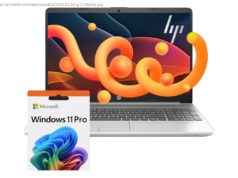How accountable are players?
The Overwatch League has a player behavior problem — except it’s not just an Overwatch League problem. It’s a culture problem, and one that has been festering on YouTube and Twitch for years.
YouTube and Twitch are platforms that breed toxicity, and creators are often rewarded for their bad behavior. The more that casters yell, belittle or talk about another streamer while playing a game, the more likely it is that people are going to tune into their streams on a regular basis. Some of gaming’s most toxic figures are also some of the most popular. But what happens when those same personalities become professionals?
xQc, a professional Overwatch player who was suspended and fined $2,000 by the Overwatch League for making homophobic comments on his own channel, has long been regarded as an aggressive streamer. xQc spoke about his suspension from the Overwatch League in early February pointing out that fellow Overwatch player and streamer Jake gets away with telling other players to kill themselves without penalty.
xQc found himself in hot water once again on March 3, when he tweeted out that “casting is cancer” following a Dallas Fuel match, referring to Overwatch League commentators. xQc later apologized for the tweet, following it up with another comment that many took to be a sarcastic jab at commentators.
Iove the casters. I think they are great and appreciate my fellow owl players. Furthermore, the enforcement of the rules is fantastic. This community is the epitome of esports. I love every single of you. My favourite emote is the neutral «:)» in chat. Use it more often! pic.twitter.com/L4ooHCbmqP
xQc isn’t the only Overwatch League player who’s found himself in trouble, but he is one of the most notable. Toxic Overwatch League players on streams, Twitter, Discord and other platforms have left fans to consider just how much controversial players should be responsible for their behavior when not playing competitive matches. Should players be held accountable for comments and actions made outside of the league?
The Overwatch League finally released a code of conduct on Feb. 22 for players to abide by, after months of ironing out the details.
The code of conduct states that players must “observe the highest standards of personal integrity and good sportsmanship” and “not engage in any activity or practice which brings him or her into public disrepute or scandal.” It also says that the commission has clear jurisdiction to “investigate alleged violations of the Official Rules and to impose discipline for any violations.”
That means that if a player violates the code of conduct, it’s up to the Overwatch League commission to determine consequences on a case-by-case basis. That’s within its jurisdiction, but there remain concerns that the League isn’t clarifying for players how separate they need to keep their personal streams from their professional, public-facing presence.
Think of it this way: Professional basketball players in the NBA or actors working with Disney are expected to maintain a certain image. NBA players can’t break the code of conduct, and Disney actors are asked to sign a morality clause. Anything they do that violates these guidelines could cost them their positions.
The Overwatch League’s code of conduct doesn’t include stipulations like this. The code doesn’t even acknowledge personal Twitch streams. It’s crucial that the League does specify how far its guidelines extend, though, considering how many players came to prominence on Twitch, where they gained followings for engaging in frequently unprofessional behavior.
Meanwhile, Twitch’s community guidelines state that harassment, hateful speech and cyberbullying will not be tolerated on the platform. Players found perpetuating this behavior will receive indefinite suspensions. If streamers like xQc are in violation of Twitch’s own rules, especially as it relates to words said while playing Overwatch, the league needs to get more involved with what its players are up to during their on streams, on Twitter and elsewhere.
For Twitch, these guidelines come from the company’s attempts to clamp down on off-platform behavior, in the hopes of fixing the bigger problem of toxicity on the site.
“Our desire to moderate verifiable off-Twitch harassment stems from our belief that ignoring conduct when we are able to verify and attribute it to a Twitch account compromises one of our most important goals: every Twitch user can bring their whole authentic selves to the Twitch community without fear of harassment,” the company wrote on its blog.
While Blizzard has failed to address Overwatch League players’ outside behavior, game director Jeff Kaplan has spoken out against harassment within Overwatch ’s player base.
Kaplan addressed the issue of toxicity in Overwatch’ s player base in a recent developer update video. Kaplan said toxicity has been on the decline, and the company is looking into how to better the community further. That includes proactively seeking out bad player behavior on sites like YouTube.
“We now proactively seek out social media sites like YouTube, for example,” Kaplan said, “and look for incidents of very toxic behavior and track down the accounts that are participating in those and action them, often times before anybody’s even reported them or they’ve shown up in any other place. That’s just one example of us being proactive that I think is going to make a big difference over time.”
The team’s increased moderation has been polarizing. While many applaud Blizzard’s efforts to create a more welcoming space for all players, others aren’t sure it’s fair to police players outside of the game itself. But Twitch has done just that for some time: If Twitch viewers come across a clip of a streamer breaking the company’s terms of service, Twitch will take action, no matter how long ago the incident may have occurred.
“There are no time restrictions regarding when a report can be made,” a Twitch representative told Polygon. “So if you find older content that you believe violates our community guidelines, please use the report button on the respective channel page.”
The fact remains that some of these reported Overwatch League players are streaming on their own time, and teams aren’t sure how to deal with it. Taimou, a Dallas Fuel player, gained attention after he reportedly referred to another player as a “fucking faggot kid” during his own stream on Jan. 23. A statement from Dallas Fuel, given to Compete, reads:
In regards to the Dallas Fuel we do recognize that our players and all those in the Overwatch League are constantly under the microscope. Contact from ESPN is the first I’m aware of receiving related to what you reference below. As an organization, we strive to provide players with advice and resources to help them balance professionalism needed to compete at a league level with the individual personalities that may have gained them popularity or their own followings. As you’ve seen recently, we certainly do look into any situation that goes against a code of conduct befitting the team and/or league.
Dallas Fuel is aware of who its players are off the field. Acknowledging that “we strive to provide players with advice and resources to help them balance professionalism needed to compete at a league level with the individual personalities that may have gained them popularity or their own followings” is further proof of that.
Competitive online gaming is overrun with toxic players. While it was once confined to games themselves, we’re now seeing that behavior infiltrate professional sporting leagues, where independent Twitch streamers are rapidly becoming certifiable athletes.






